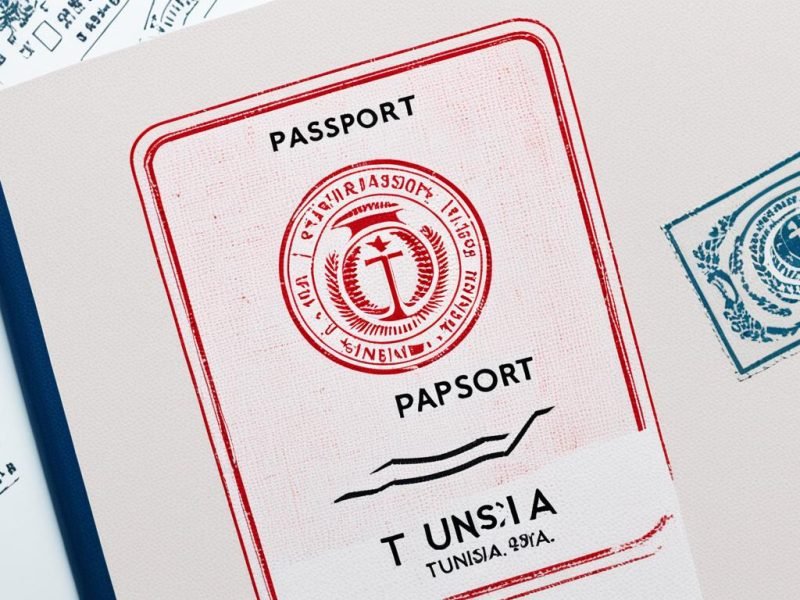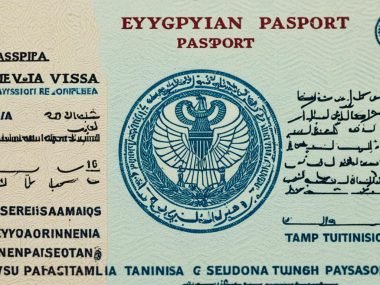If you are traveling through Tunisia and have a layover or connecting flight in the country, you may be wondering if you need a visa to transit. The answer depends on your nationality and the length of your stay.
According to Tunisian visa regulations, citizens of certain countries are exempt from needing a visa for transit through Tunisia. These countries include EU member states (excluding Cyprus), Algeria, Australia, Canada, China, Japan, South Korea, Switzerland, the United States, and many more. However, it’s important to note that the exemption is for stays of up to 90 days. If you plan to stay longer or your country is not on the exemption list, you will need to apply for a transit visa.
Key Takeaways
- Citizens of certain countries are exempt from needing a visa for transit through Tunisia for stays of up to 90 days.
- If your country is not on the exemption list or you plan to stay longer, you will need to apply for a transit visa.
- Tunisian visa regulations vary depending on your nationality and the length of your stay.
Tunisia Transit Visa Requirements
If you are planning to transit through Tunisia and require a transit visa, there are specific requirements you need to fulfill and documents you must provide. The exact requirements may vary depending on your country of residence and the Tunisian embassy or consulate you are applying through.
Here are some common Tunisia transit visa requirements:
- A completed Tunisia transit visa application form
- A valid passport with at least six months of validity remaining
- A copy of the first page of your passport
- Passport-size photos
- Proof of accommodation in Tunisia
- A travel itinerary
- Proof of paid visa fees
It is important to note that the processing time for a Tunisia transit visa can vary. On average, it can take anywhere from 5 to 20 business days to receive a visa. The specific duration depends on the workload of the embassy or consulate where you are applying.
The visa fees for a Tunisia transit visa will also depend on your country of residence and the embassy or consulate you are applying through. It is advisable to check the respective embassy or consulate’s website for the most accurate and up-to-date information regarding visa fees.
Having met the Tunisia transit visa requirements and provided all the necessary documents, you can proceed with your application. By fulfilling the requirements and allowing sufficient processing time, you can ensure a smooth visa application process and secure your transit through Tunisia.
How to Apply for a Tunisia Transit Visa
If you are planning to transit through Tunisia and require a visa, the application process must be done through a Tunisian embassy or consulate. Below are the steps to apply for a Tunisia transit visa:
- Find the nearest Tunisian embassy or consulate in your country. If there isn’t one in your country, locate the closest diplomatic mission.
- Visit the embassy or consulate’s website for detailed information about the application process. You can also inquire about making an appointment through their website.
- Gather all the required documents for the application. The specific requirements may vary depending on your country of residence and the embassy or consulate you are applying through. Typical documents include a completed Tunisia transit visa application form, a valid passport with at least six months of validity remaining, a copy of the passport’s first page, passport-size photos, proof of accommodation in Tunisia, a travel itinerary, and proof of paid visa fees.
- Submit the completed application form and all the required documents in person at the embassy or consulate. Currently, there is no online application process for a Tunisia transit visa, so an in-person application is necessary.
By following these steps and providing all the necessary documents, you can apply for a Tunisia transit visa and ensure a smooth transit through the country.
“Applying for a transit visa through the Tunisian embassy is the only way to obtain a visa for transiting through Tunisia.” – Me
Required Documents for a Tunisia Transit Visa
| Documents | Requirements |
|---|---|
| Completed Tunisia transit visa application form | Fill out the application form accurately and legibly |
| Valid passport | Ensure your passport has at least six months of validity remaining |
| Copy of the passport’s first page | Provide a clear photocopy of the first page of your passport |
| Passport-size photos | Submit recent color photos that meet the specifications outlined by the embassy or consulate |
| Proof of accommodation in Tunisia | Show evidence of your hotel reservation or accommodation arrangements in Tunisia |
| Travel itinerary | Outline your planned travel dates, including entry and exit points in Tunisia |
| Proof of paid visa fees | Provide the receipt or proof of payment for the visa fees specified by the embassy or consulate |
Tunisia Visa On Arrival for Transit
If you are a citizen of a visa-exempt country and you are transiting through Tunisia, you can get a Tunisia Visa On Arrival. This means that you can obtain your visa upon arrival at the airport. The visa on arrival allows you to stay in Tunisia for up to 3 months, and for citizens of Canada and Germany, the duration of stay is extended to 4 months. However, it’s important to note that this option is only available to citizens of visa-exempt countries. If you are not from a visa-exempt country, you will need to apply for a transit visa in advance.
Eligibility for Tunisia Visa on Arrival
To be eligible for the Tunisia Visa On Arrival for transit, you must be a citizen of a visa-exempt country. This includes citizens of EU member states (excluding Cyprus), Algeria, Australia, Canada, China, Japan, South Korea, Switzerland, the United States, and many more. However, it’s important to check the official Tunisian embassy or consulate website for the most up-to-date information on visa-exempt countries, as the list may vary.
Requirements for Tunisia Visa on Arrival
When arriving in Tunisia and applying for a Visa On Arrival, there are certain requirements you need to fulfill. These requirements include a valid passport with at least six months of validity remaining, a return or onward ticket, proof of accommodation in Tunisia (such as hotel reservations), and sufficient funds to cover your stay in Tunisia. It’s important to note that these requirements may vary and it’s recommended to check with the Tunisian embassy or consulate for the exact documentation needed.
Duration of Stay with Tunisia Visa on Arrival
The Tunisia Visa On Arrival allows you to stay in Tunisia for up to 3 months. However, for citizens of Canada and Germany, the duration of stay is extended to 4 months. It’s important to adhere to the maximum duration of stay and ensure that your departure date is within the allowed timeframe. Overstaying your visa can result in penalties and difficulties when traveling in the future.
Tips for Traveling Through Tunisia
When traveling through Tunisia, it’s important to take certain safety precautions and be aware of potential scams. Tunisia has experienced terrorist activity in the past, and while the government has taken steps to improve security, it’s still important to remain vigilant.
- Safety Precautions for Transit in Tunisia: Avoid crowded areas and be cautious of your surroundings. Keep your belongings secure and avoid displaying valuable items.
- Avoiding Tourist Scams in Tunisia: Be aware of common tourist scams and be cautious when dealing with strangers offering unsolicited assistance or deals that seem too good to be true.
Responsible tourism is also crucial when visiting Tunisia. By respecting local customs and traditions, you can help foster a positive cultural exchange. Additionally, being mindful of the impact of your actions on the local environment and community can contribute to the sustainability and preservation of Tunisia’s cultural heritage and natural beauty.
Quotes
“Traveling through Tunisia can be a rewarding experience, but it’s important to prioritize safety and responsible tourism practices. By taking precautions and being mindful of the local culture and environment, you can make the most of your journey.” – John Smith, Experienced Traveler
By following these tips, you can ensure a safe and enjoyable experience while traveling through Tunisia.
| Tips for Traveling Through Tunisia | Benefits |
|---|---|
| Avoid crowded areas | Enhances personal safety |
| Keep belongings secure | Reduces the risk of theft |
| Respect local customs | Fosters cultural exchange |
| Maintain responsible tourism practices | Preserves Tunisia’s cultural heritage and natural beauty |
Conclusion
In conclusion, the Tunisia transit visa requirements are dependent on your nationality and the duration of your stay. If you are a citizen of a visa-exempt country, you can transit through Tunisia without a visa for up to 90 days. However, if you are not from a visa-exempt country or you plan to stay longer, you will need to apply for a transit visa.
The application process for a Tunisia transit visa may vary based on your country of residence and the Tunisian embassy or consulate you are applying through. It is essential to ensure that you have all the required documents and allow sufficient time for visa processing.
By following the necessary procedures and fulfilling the visa requirements, you can have a seamless transit experience through Tunisia. Whether you are exploring the country during a layover or connecting flight, Tunisia offers a rich cultural experience and stunning landscapes to explore.
In summary, familiarize yourself with the Tunisia transit visa regulations, gather the necessary documentation, and complete the application process in a timely manner. By doing so, you can confidently transit through Tunisia and make the most of your journey.







